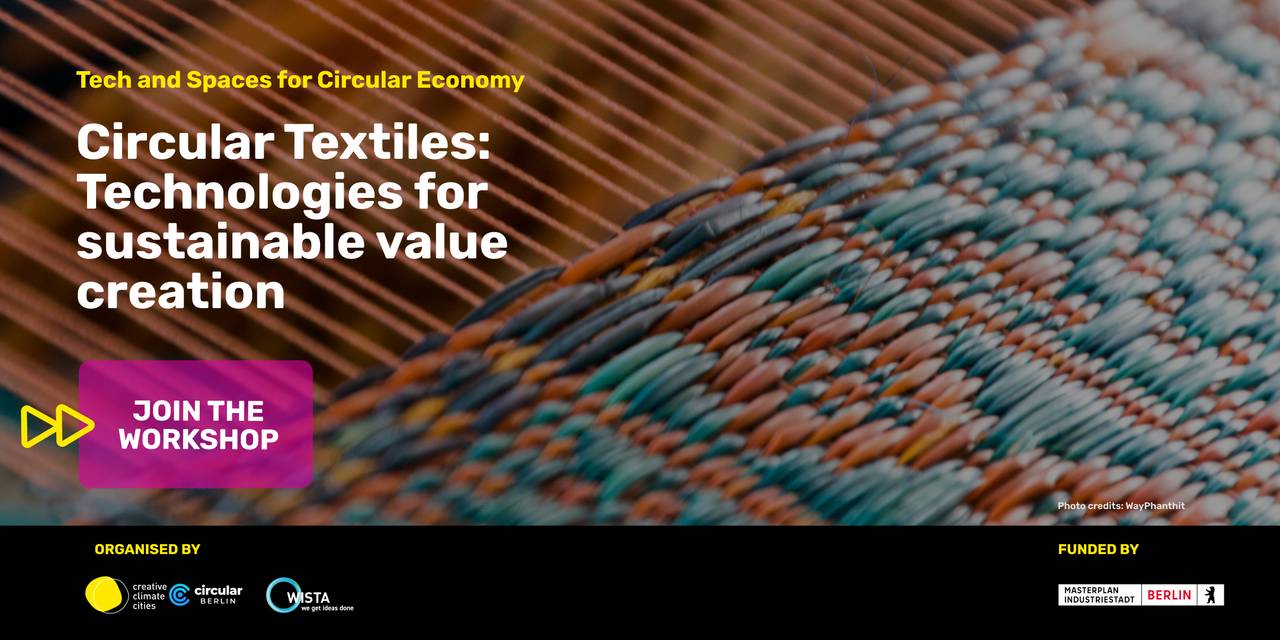Circular Textiles: Technologies for sustainable value creation
The textile industry faces mounting waste challenges due to fast fashion, mixed-material compositions, and inefficient recycling technologies. With a projected 60% increase in textile waste by 2030, current recycling and reuse infrastructures struggle to keep up. Many promising fiber-to-fiber recycling and sorting technologies remain unscaled, limiting their impact.
This workshop will explore how emerging technologies in Optics, Photonics, and New Materials can drive sustainability in the textile sector. Key topics include:
- How can technology address challenges in the textile industry?
- What steps are needed to bridge the gap between technology providers and the textile industry?
- How can technologies be adapted to meet real-world industry needs?
- What impact do regulations, such as Ecodesign for Sustainable Product Regulation (ESPR), and PFAS restrictions, have on the textile industry and its enabling technologies?
Together, we will identify actionable solutions and discuss how technology-driven approaches can contribute to circular and sustainable practices in the textile industry.
Current industry challenges:
Sustainable Finishing Processes: Traditional textile finishing relies on water-intensive dyeing and chemical treatments, generating significant environmental impact. The challenge lies in developing alternatives that reduce water and chemical use while maintaining quality. A key issue is balancing the use of safer, toxic-free monomaterials for recyclability with achieving high durability and product performance. Mixed fibers and chemical treatments often enhance properties like comfort, elasticity, and longevity, but they complicate recycling. Additionally, high-quality natural fibers are more expensive, limiting their widespread adoption.
Optimized Cutting & Production: The textile industry struggles with high material waste and inefficient production processes. There is a pressing need for solutions that enhance precision, minimize waste, and enable scalable, cost-effective manufacturing processes that align with circular economy principles.
Garment Disassembly for Fiber Sorting: Textile recycling is hindered by the complexity of garment structures, which often include multiple fiber types, buttons, zippers, and coatings. Efficient and scalable disassembly methods are required to improve fiber recovery and facilitate high-quality recycling.
Automated Textile Sorting for Recycling & Reuse: The accurate identification and sorting of textile fibers remain a major challenge, limiting the effectiveness of current recycling processes. Advanced sorting technologies must be integrated into textile waste management to ensure better separation of fibers and improve circularity.
Potential of Recycled/Secondary Materials: The current quality of recycled materials presents a challenge, particularly in meeting the high standards of fashion brands. Many brands limit the use of recycled fibers due to concerns over durability and tensile strength. Moreover these materials are often more expensive than virgin fibers and can only achieve price competitiveness if demand increases.
Whom is it for?
We invite technology companies and researchers in Optics, Photonics, and New Materials looking to develop tailored solutions for the textile sector. We also encourage textile industry experts to join, offering their insights on current challenges and guiding the adaptation of new technologies.
Expected outcomes
- Identification of concrete technological solutions applicable to the textile industry, focusing on practical innovations across the value chain.
- Defining requirements for integrating tech solutions into a circular textile value chain in Berlin and Germany, ensuring alignment with industry needs and regulatory frameworks.
- Exploration of new markets in the textile domain for the technology providers, considering market demands, business opportunities, and conditions for successful commercialization of circular solutions.
Workshop Structure
to be updated
About the Project ‘Tech and Spaces for Circular Economy’
This webinar is organised as part of the ‘Tech and Spaces for Circular Economy’ project, led by Creative Climate Cities, Circular Berlin, and WISTA Management GmbH, addresses the challenges of implementing circular strategies. The project explores how innovations in optics, photonics, and materials sciences and spatial concepts can enhance and scale circular practices across industries.
Funded by the Berlin Senate Department for Economic Affairs, Energy and Public Enterprises part of the Master Plan Industrial City Berlin 2022 - 2026 (MPI), this initiative aims to drive resource-efficient production and manufacturing.
For more information on project goals, partners, and timeline, please visit our project webpage.




